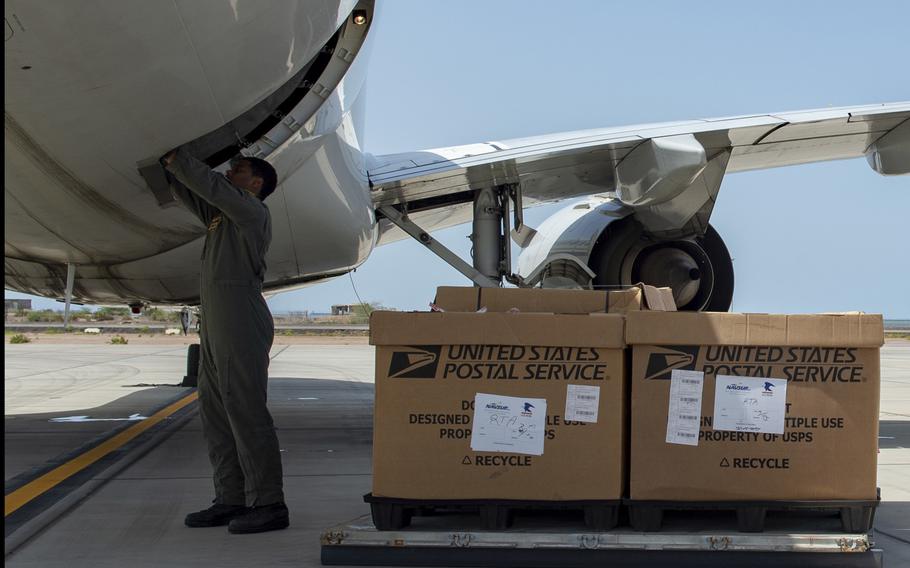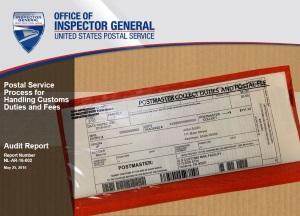This article was produced by Merry Law, Mailers Hub’s expert consultant on international mail. Merry may be reached at MLaw@WorldVu.com
The US Congress has a long history of passing bills related to the USPS. The Postal Service Reform Act (PSRA) of 2022 was the first to pass Congress since the Postal Accountability and Enhancement Act (PAEA), passed in 2006. (Congress also likes to commemoratively rename post offices with any costs borne by the USPS.) Although major postal legislation has been infrequent, other legislation that affects the USPS is being considered.
Four major initiatives
Currently, four possible pieces of legislation, listed below, have been introduced, with two of them in both the Senate and the House of Representatives. These four items are in six bills – two in the House and four in the Senate. For each, the title, description, bill number, and sponsor are given. (For the full bill text and additional information, enter the bill number and 118th Congress into a search engine, or click the title for the congress.gov listing.)
- Uniform Postal Data Acquisition for Transparency and Early Detection within the United States Postal Service Act (the UPDATED USPS Act): “To strengthen the requirements relating to advance electronic information for cargo … .” HR 4023, sponsored by Rep. Mike Ezell (MS 4th) and S 1711, sponsored by Sen. Rick Scott (FL).
- STOP Act 2.0: “To increase the criminal penalty for mail fraud involving misrepresentation of the country of origin, to terminate the authority to exclude countries from the requirement to transmit advance electronic information for 100 percent of mail shipments under the STOP Act of 2018 … .” S 986, sponsored by Sen. Amy Klobuchar (MN).
- De Minimis Reciprocity Act of 2023: “To amend the Tariff Act of 1930 to require reciprocity with respect to de minimis entries of articles … .” S 1969, sponsored by Sen. Bill Cassidy (LA).
- Import Security and Fairness Act: “To exclude products from non-market economy countries and products that are subject to certain enforcement actions from the privilege of de minimis treatment under the Tariff Act of 1930 … .” HR 4148, sponsored by Rep. Earl Blumenauer (OR 3rd) and S 2004, sponsored by Sen. Sherrod Brown (OH).
The first two, the UPDATED USPS Act and the STOP Act 2.0, would tighten requirements for inbound Advanced Electronic Data (AED). Both require more data in advance of the packages or shipments arriving in the US and eliminate exceptions for countries unable to meet the requirements. Currently, Customs and Border Protection (CBP) can issue exceptions for countries without the technical capability to provide AED. The likely consequences are higher costs for all inbound packages and more difficulty receiving items from some countries. The De Minimis Reciprocity Act changes how the customs de minimis works, from an absolute exemption of any package under $800 to a variable rate based on the importing country’s de minimis for goods from the US. (The de minimis is the rate below which duty or tax is not collected. Normally, countries establish a flat rate, either the value of the merchandise or the amount that would be collected.) This variable rate would be established annually by the Secretary of the Treasury, taking into account the customs duty in each country and “any related thresholds of that country, such as a threshold relating to a value-added tax on imports.” Special provisions are made for China and Russia, applying more restrictions.

This bill would change completely the way in which US customs de minimis is set and administered. US and foreign companies would not be able to plan the costs in advance for the following year. While this bill has been introduced in the House and the Senate with some bipartisan support, it could trigger retaliatory actions from other countries, be costly to administer, and be costly to US importers.
Under the Import Security and Fairness Act, the US customs de minimis would not apply to non-market economy countries and countries on the security watch list. In press articles covering this bill, China, Russia, and Vietnam have been mentioned as countries that would be covered. Imports from those countries would be subject to customs duty if their value is less than $800.00. As we all know, the US receives many, many thousands of low-value imports from China. These would cost more for consumers and the additional paperwork required would also add costs for exporters and importers.
Who’s impacted
If any of these become law, US business and individual importers, foreign exporters, international shipping and logistics companies, and others in the logistics chain for imports into the US all will be touched by the consequences, along with the government agencies involved in oversight or enforcement. The cost will increase for all the parties involved, including consumers. The large private express carriers are watching these bills and talking to their Congressional contacts. (The USPS cannot lobby.)

Mail service providers working with overseas fulfillment operations may find any of the above bills particularly problematic if enacted into law. Bringing these bills to the attention of legal advisors will allow them to assess any potential problems.
A long way from becoming law
The six bills have been introduced. They now go to committees in the chamber where they were introduced; each committee will examine the bills assigned to it. The committees can request research, hold hearings, and make amendments. Each bill then either will be sent to the whole chamber (the House or Senate as appropriate) where it will again be discussed and can again be amended, or not be sent on by the committee, and it dies.
The same exact text must be passed by both the House and the Senate for a bill to go forward to the President. If the text differs, there is usually a discussion between a small group of Senators and Representatives to resolve the differences and both chambers approve the now-identical bills. This draft law then goes to the President, who can sign it into law or veto it. If the President vetoes it, Congress can drop the matter, override the veto (unlikely given the current Congress), or begin again with new bills that might avoid a veto. The UPDATED USPS Act and the Import Security and Fairness Act have versions in both the House and Senate; the STOP Act 2.0 and the De Minimis Reciprocity Act of 2023 do not. Congress has until the end of the 2023-2024 Congress to act


